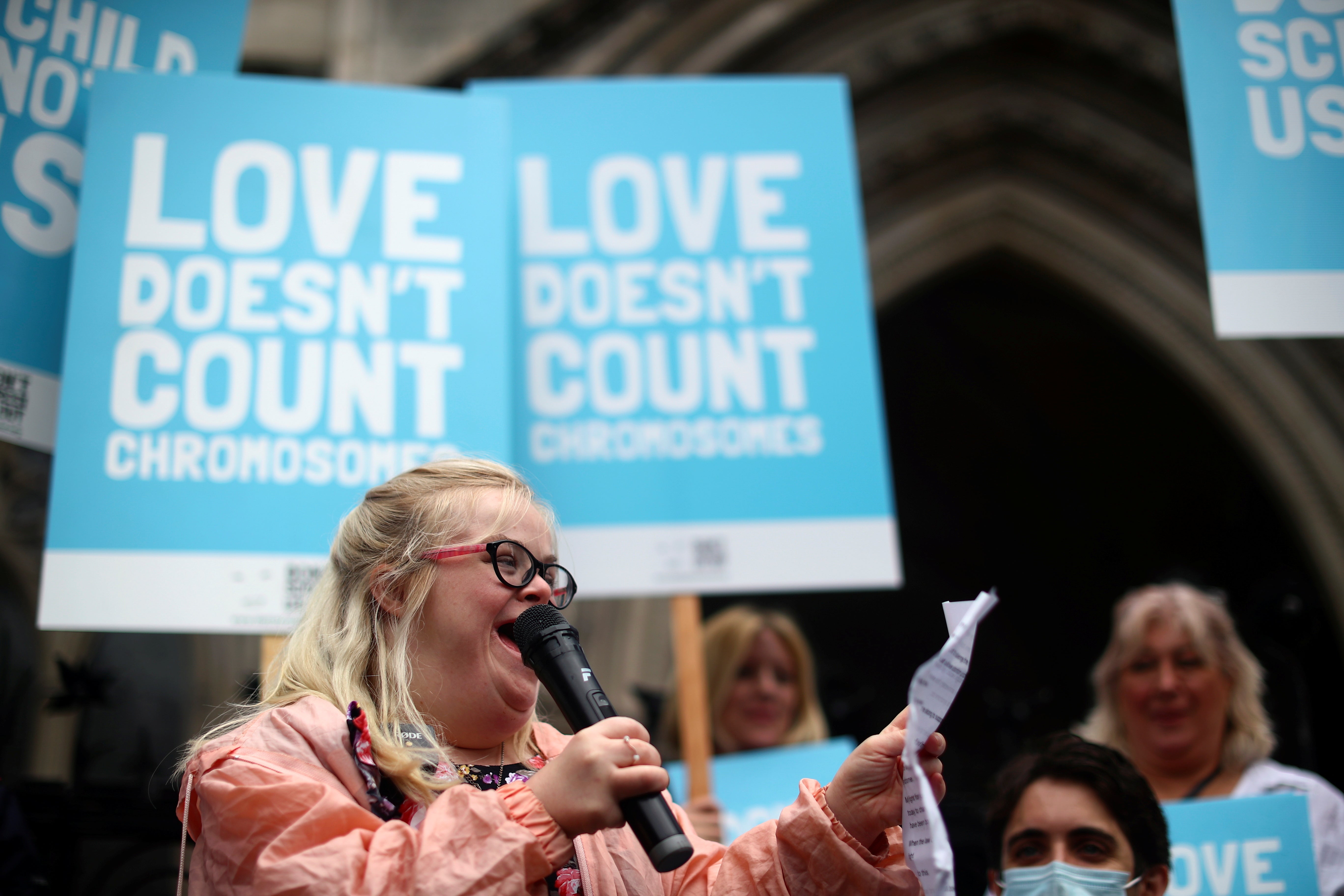Woman with Down’s syndrome loses court challenge over abortion law
Heidi Crowter and her co-claimants think legislation is discriminatory

Your support helps us to tell the story
From reproductive rights to climate change to Big Tech, The Independent is on the ground when the story is developing. Whether it's investigating the financials of Elon Musk's pro-Trump PAC or producing our latest documentary, 'The A Word', which shines a light on the American women fighting for reproductive rights, we know how important it is to parse out the facts from the messaging.
At such a critical moment in US history, we need reporters on the ground. Your donation allows us to keep sending journalists to speak to both sides of the story.
The Independent is trusted by Americans across the entire political spectrum. And unlike many other quality news outlets, we choose not to lock Americans out of our reporting and analysis with paywalls. We believe quality journalism should be available to everyone, paid for by those who can afford it.
Your support makes all the difference.A woman with Down’s syndrome has failed in her bid to overhaul legislation that allows the abortion of babies with the condition at any stage of pregnancy.
Heidi Crowter, from Coventry, lost her High Court challenge against the government on Thursday.
Along with two other claimants, she had hoped to force the Department of Health and Social Care to remove part of the Abortion Act, which she believed is discriminatory.
Although terminations in Great Britain are limited to the first 24 weeks of pregnancy, exceptions are made if there is “a substantial risk” that the child would be “seriously handicapped”.
Lawyers representing Ms Crowter and her co-claimants argued that this provision runs contrary to the European Convention on Human Rights.
In their ruling, two senior judges, Lord Justice Singh and Mrs Justice Lieven, dismissed the case, saying: “The issues which have given rise to this claim are highly sensitive and sometimes controversial.
“They generate strong feelings, on all sides of the debate, including sincere differences of view about ethical and religious matters.
“This court cannot enter into those controversies; it must decide the case only in accordance with the law.”
During the two-day hearing in July, Ms Crowter told reporters that the law was “out of date”.
“I hope we win. People shouldn’t be treated differently because of their disabilities; it’s downright discrimination,” she said.
Her comments came after the UN Committee on the Rights of Persons with Disabilities urged the British government to update its abortion laws.
Maire Lea-Wilson, who has a son with Down’s syndrome, and a child with the condition, known only as A, also brought the case.
Speaking in July, Ms Lea-Wilson said: “I have two sons that I love and value equally, but the law does not value them equally.
“This is wrong and so we want to try and change that.”
Both Ms Crowter and Ms Lea-Wilson plan to give speeches outside the Royal Courts of Justice later on Thursday.
Additional reporting by agencies
Join our commenting forum
Join thought-provoking conversations, follow other Independent readers and see their replies
Comments